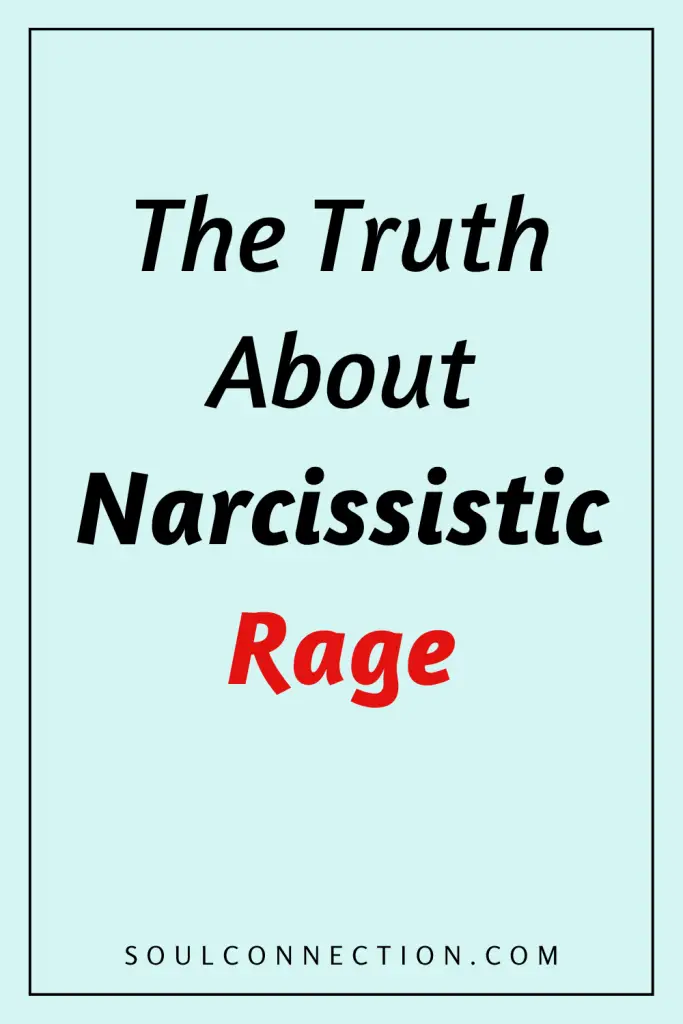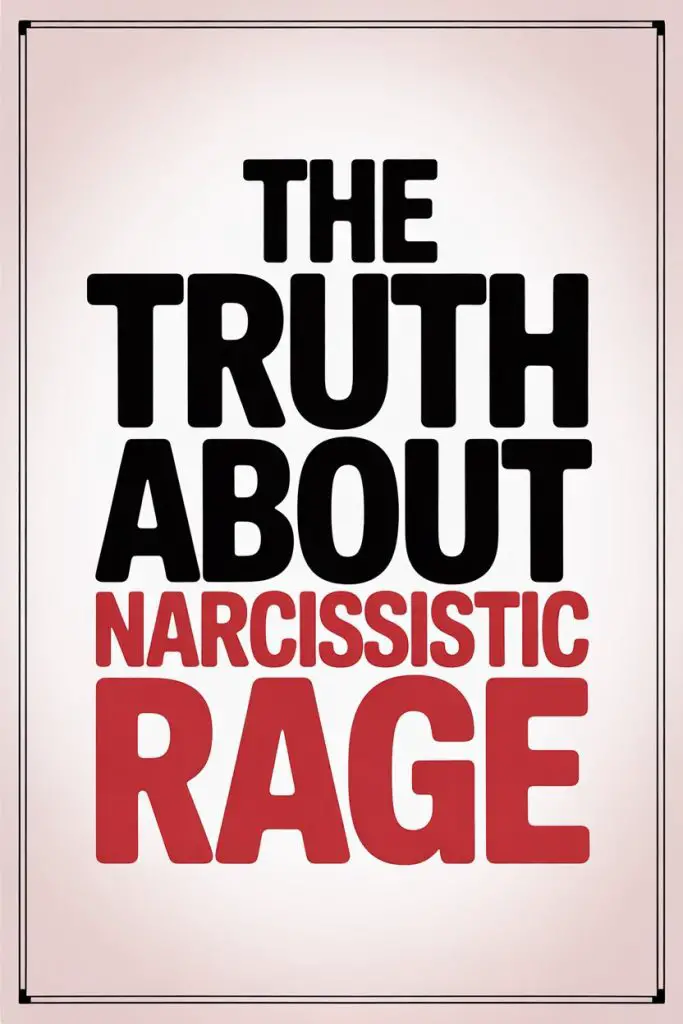Ever seen someone lose their mind over the tiniest slight, and wonder if you’ve stumbled into an episode of a soap opera? Welcome to the world of narcissistic rage.
It’s not an overreaction—it’s an eruption. More than just a bad mood, narcissistic rage has a flavor all its own. Grab your metaphorical umbrella, because this storm is a doozy.
What Narcissistic Rage Really Is
Narcissistic rage isn’t just regular anger in a fancy outfit. It springs from a deep wound to the narcissist’s fragile sense of self. When criticized, ignored, or denied their usual pedestal, the narcissist doesn’t just feel upset; they feel annihilated.
Dramatic? Absolutely. But for someone with narcissistic traits, that ego is as delicate as spun sugar.
This sort of meltdown isn’t always shouting or smashed plates. Sometimes it’s the cold, cutting silence that chills the room, or a snide comment designed to pierce.
The common thread? It’s all out of proportion to the trigger.
Why Narcissists Rage
The root of narcissistic rage is shame. That’s right—behind all that bluster is a person who can’t bear feeling small or exposed. Even mild criticism feels like a full-scale assault.
If you’ve ever watched someone react to a gentle suggestion like you’ve just insulted their ancestors, you’ve probably seen this in action.
Their self-esteem is so precarious that any threat—real or imagined—feels intolerable.
Instead of accepting fault or considering another perspective, the narcissist lashes out. It’s an emotional smoke bomb, designed to shift attention away from their own flaws.
Different Flavors of Rage
Not all narcissists throw tantrums worthy of reality TV. The rage shows up in different outfits.
Sometimes it’s explosive, all fireworks and fury. Other times, it’s icy, with a side of silent treatment that could freeze the Sahara.
Explosive rage: Think yelling, screaming, throwing things, or over-the-top accusations. This is the narcissist in full meltdown, and it’s as subtle as a marching band in your living room.
Passive-aggressive rage: Imagine a masterclass in silent treatment, sulking, or backhanded compliments. The narcissist won’t yell, but you’ll feel the chill.
Vindictive rage: This is the grudge-holder’s paradise. The narcissist might quietly plot payback, making you pay for your ‘offense’ long after you’ve forgotten it.
The Triggers No One Warns You About
Sure, calling out bad behavior or refusing to bow down can spark narcissistic rage. But sometimes it’s the tiniest things—a delayed text, a forgotten compliment, your sudden decision to have an opinion.
Narcissists are hypersensitive to anything that hints at disrespect or abandonment. Even healthy boundaries can light the fuse. It’s like walking on eggshells in tap shoes.
The Impact on You
Living with or loving someone prone to narcissistic rage is emotional Russian roulette. You find yourself swallowing words, shrinking your needs, or tiptoeing through conversations to avoid triggering the next outburst.
Long term? It’s exhausting. Anxiety ramps up. Self-esteem takes a nosedive. Friends might notice you’re a ghost at gatherings, or your laugh sounds a little forced.
No, you’re not imagining it—chronic exposure to rage can leave emotional bruises.
Is It My Fault?
Short answer: No. Longer answer: Absolutely, categorically, no.
Narcissists excel at making their explosions seem justified. If only you hadn’t questioned them, disagreed, or worn that shirt—surely you could have avoided this, right? Wrong.
The rage is about their inability to handle shame, not your behavior. You could serve breakfast in bed every day and still find yourself in the firing line.
What Works in the Heat of the Moment
It’s tempting to reason, plead, or fight back. But logical arguments bounce off narcissistic rage like a tennis ball off a brick wall.
Here’s what actually helps (a little):
- Stay calm. Yes, easier said than done. But feeding the rage with your own anger just escalates the circus.
- Set boundaries. “I’m not willing to be spoken to like this.” Then leave the room if needed.
- Don’t argue details. Once the rage train’s left the station, it’s not stopping for facts.
- Protect yourself. Physical safety comes first. If you feel threatened, trust your instincts and get distance.
And no, you can’t “fix” this for them. This storm is their weather system, not yours to clear.
Long-Term Coping: Surviving the Cyclone
Dealing with narcissistic rage regularly can leave you feeling powerless, but there are ways to reclaim your sanity.
Build your own support system—friends, family, even a therapist who gets it. You deserve to speak freely, vent, and laugh about the absurdity of it all.
Strengthen your boundaries. If you’re always stepping aside for their outbursts, the rage gets reinforced. Consistent boundaries, kindly but firmly stated, matter more than you think.
Don’t get sucked into their revisionist history. Narcissists love to rewrite events to paint themselves as the victim. Keep your own notes if needed, or at least a mental record of what actually happened.
Prioritize yourself. Your peace isn’t selfish—it’s necessary. Make time for things that recharge you (and yes, hiding in the loo with your phone counts).
Can Narcissists Change?
Miracles exist, but they’re rare. Most narcissists will not see the light after a single calm conversation.
Change only happens when they choose to seek help and genuinely want to shift. Even then, progress is measured in baby steps, not leaps.
If you’re hoping for a fairytale turnaround, you could be waiting a long time.
When to Call It Quits
If narcissistic rage has crossed into threats, violence, or consistent emotional abuse, it’s time to put yourself first. No relationship is worth constant fear or walking on eggshells.
Getting out isn’t always easy—narcissists often double down if they sense you pulling away. Line up your resources, tell someone you trust, and seek professional advice if you need an exit plan.
Safety always trumps social niceties.
What Recovery Looks Like
Escaping the cycle of narcissistic rage isn’t just a breath of fresh air—it’s a whole new climate. Healing takes time, but it’s possible.
You’ll unlearn the habit of shrinking yourself. You’ll laugh again. You’ll notice how peaceful it feels to disagree with someone and not get blasted for it.
Hey, you might even start humming in the shower.
Finding Your Way Forward
Surviving narcissistic rage is a feat, not a failure. Most people tangled up with a narcissist didn’t sign up for a lifetime of emotional fireworks.
If you’re here, reading this, you’re already braver than you feel.
You’re allowed to choose your peace over someone else’s volatility. You’re allowed to set boundaries that protect your sanity.
And if the time comes, you’re allowed to walk away without looking back.
Keep your humor handy, your support network close, and your own needs at the top of the list. Life after narcissistic rage isn’t just possible—it’s waiting, with wide open arms and not a rage-fit in sight.


